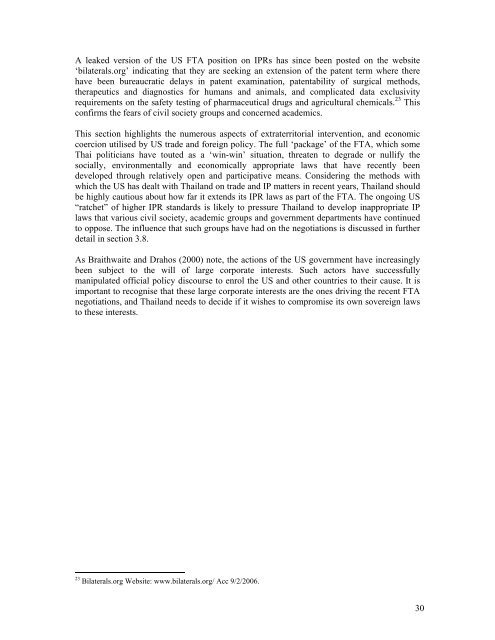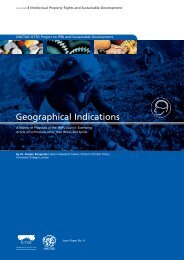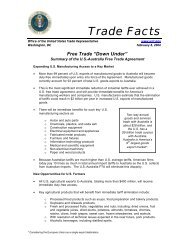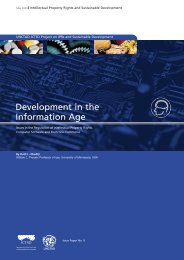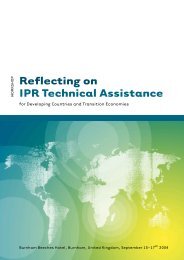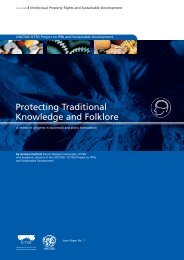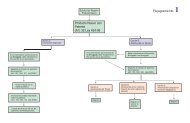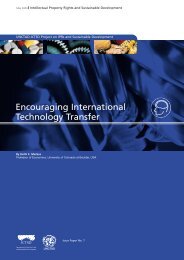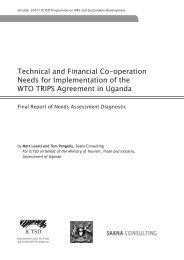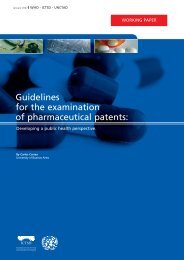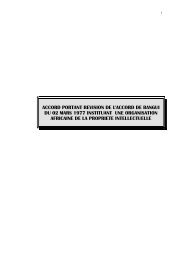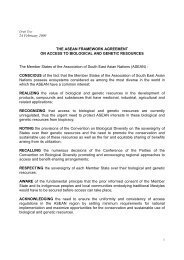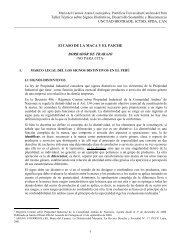Governance and Micropolitics of Traditional ... - IPRsonline.org
Governance and Micropolitics of Traditional ... - IPRsonline.org
Governance and Micropolitics of Traditional ... - IPRsonline.org
You also want an ePaper? Increase the reach of your titles
YUMPU automatically turns print PDFs into web optimized ePapers that Google loves.
A leaked version <strong>of</strong> the US FTA position on IPRs has since been posted on the website<br />
‘bilaterals.<strong>org</strong>’ indicating that they are seeking an extension <strong>of</strong> the patent term where there<br />
have been bureaucratic delays in patent examination, patentability <strong>of</strong> surgical methods,<br />
therapeutics <strong>and</strong> diagnostics for humans <strong>and</strong> animals, <strong>and</strong> complicated data exclusivity<br />
requirements on the safety testing <strong>of</strong> pharmaceutical drugs <strong>and</strong> agricultural chemicals. 23 This<br />
confirms the fears <strong>of</strong> civil society groups <strong>and</strong> concerned academics.<br />
This section highlights the numerous aspects <strong>of</strong> extraterritorial intervention, <strong>and</strong> economic<br />
coercion utilised by US trade <strong>and</strong> foreign policy. The full ‘package’ <strong>of</strong> the FTA, which some<br />
Thai politicians have touted as a ‘win-win’ situation, threaten to degrade or nullify the<br />
socially, environmentally <strong>and</strong> economically appropriate laws that have recently been<br />
developed through relatively open <strong>and</strong> participative means. Considering the methods with<br />
which the US has dealt with Thail<strong>and</strong> on trade <strong>and</strong> IP matters in recent years, Thail<strong>and</strong> should<br />
be highly cautious about how far it extends its IPR laws as part <strong>of</strong> the FTA. The ongoing US<br />
“ratchet” <strong>of</strong> higher IPR st<strong>and</strong>ards is likely to pressure Thail<strong>and</strong> to develop inappropriate IP<br />
laws that various civil society, academic groups <strong>and</strong> government departments have continued<br />
to oppose. The influence that such groups have had on the negotiations is discussed in further<br />
detail in section 3.8.<br />
As Braithwaite <strong>and</strong> Drahos (2000) note, the actions <strong>of</strong> the US government have increasingly<br />
been subject to the will <strong>of</strong> large corporate interests. Such actors have successfully<br />
manipulated <strong>of</strong>ficial policy discourse to enrol the US <strong>and</strong> other countries to their cause. It is<br />
important to recognise that these large corporate interests are the ones driving the recent FTA<br />
negotiations, <strong>and</strong> Thail<strong>and</strong> needs to decide if it wishes to compromise its own sovereign laws<br />
to these interests.<br />
23 Bilaterals.<strong>org</strong> Website: www.bilaterals.<strong>org</strong>/ Acc 9/2/2006.<br />
30


